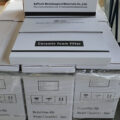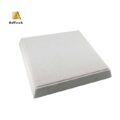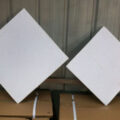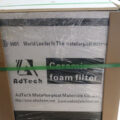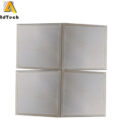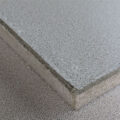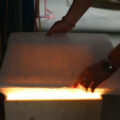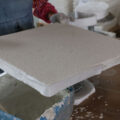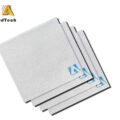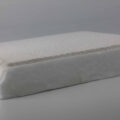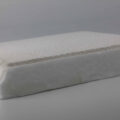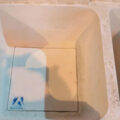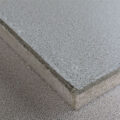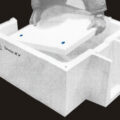The aluminum casting filtration of alumina ceramic foam filter can effectively remove and absorb various impurities in molten aluminum, improve surface quality, product performance and microstructure effectiveness.
The aluminum casting filtration uses a special alumina ceramic foam filter to remove the inclusions generated between the refining system and the mold table. The ability of the ceramic foam filter to capture these inclusions is critical to maintaining a clean ingot during the metal solidification process. Therefore, the quality and productivity of downstream operations such as forging, extrusion and rolling are guaranteed.
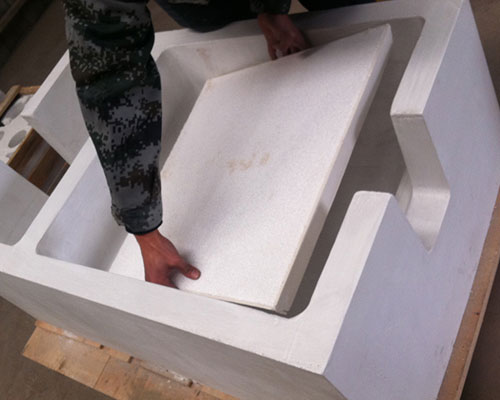
The gasketed foam filter is based on a carrier with a solid network structure and organic foam cells. The production steps are as follows. The carrier is put into the thixotropic alumina slurry, and the square centering automatic extrusion process is adopted to make the slurry uniformly deposit on the foam skeleton of the carrier. After drying and solidification, the carrier is formed by baking and finally becomes the final product. The filter is installed in the filter box to filter the impurities in the molten aluminum alloy, which helps to meet the production requirements of high value-added, high-tech performance aluminum alloy precision casting, such as computer hard drives, printed PS substrates, canned materials, turbines Fan blades of jet engines, etc.
The ceramic foam filter is surrounded by a gasket, which is located between the filter and the filter cup to prevent the molten aluminum from leaking through the interface. AdTech’s filter uses three different types of gaskets, namely fiber paper material, fiber cotton material and expanded cotton material.
Ceramic foam filters are mainly used to filter aluminum and alloys in foundries and foundries. The filter has excellent resistance to molten aluminum erosion and corrosion, can effectively remove inclusions, reduce residual gas and provide laminar flow, and then the filtered metal is significantly cleaner. Cleaner metals can produce higher-quality castings, fewer scraps and fewer inclusion defects, all of which help increase profits.

